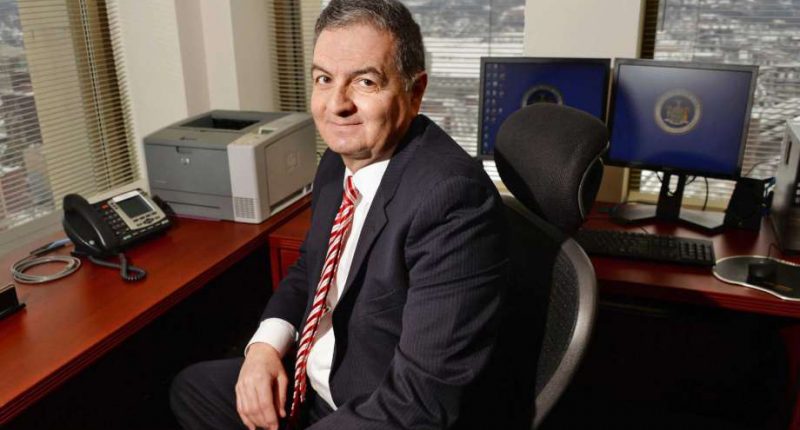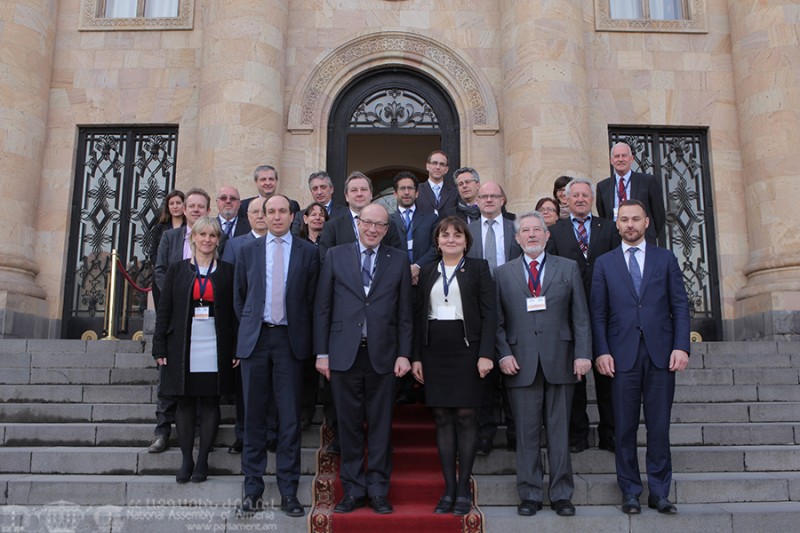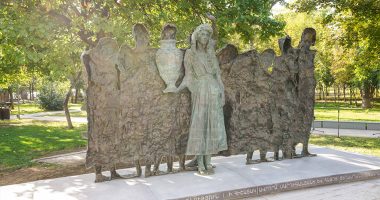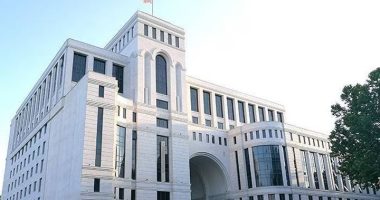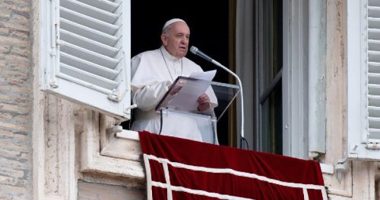NEW YORK — The Armenian Bar Association held its annual Public Servants Dinner at the Yale Club in New York City on April 25, 2019, to a sold-out, full house of 300. The honorees were US Deputy Attorney General Rod J. Rosenstein, and the longtime Administrator of the New York State Commission on Judicial Conduct, Robert H. Tembeckjian.
In his remarks, Rosenstein defended his handling of the Special Counsel Robert Mueller’s Report on Russian interference in the 2016 US presidential election.
In contrast, Tembeckjian criticized present US immigration policy by comparing it to the experience of his own grandparents, who entered the US illegally in 1926.
Following is the full text of Tembeckjian’s remarks :
Your Eminences, members of the Armenian Bar Association, my fellow honoree Rod Rosenstein, ladies and gentlemen:
It is a great pleasure for me to be at an Armenian event, where the names are pronounced as easily as they are spelled, and where “Rosenstein” is harder for people to get right than “Tembeckjian.”
Thank you, Judge Acosta, my esteemed colleague and friend, for your kind introduction. Listening to you, I realize just how old I am. I guess this ceremony demonstrates that if you hang around long enough, you will eventually be recognized for something more than a passing resemblance to Mr. Bean.
I am somewhat bemused, given my line of work, that so many judges are here tonight. Perhaps they think this is a valedictory and they came to celebrate my departure. Sorry. This is not my retirement dinner.
On the other hand, Rod Rosenstein has been leaving his job for months. I can tell by the absence of Secret Service that the one person most anxious to see him leave for the past two years is not here. Perhaps he was intimidated by today’s date. It is, after all, the 25th, and the last person he’d want to hear on the 25th is Rod Rosenstein.
Rod and I have different relationships to the Armenian-American community. He chose to join it, having the good sense to marry Lisa Barsoomian. I had no choice in the matter. Marrying into such a tight-knit community can be challenging. Just ask Kanye West. But growing up Armenian has its own confusions and burdens, from trying to understand why people jokingly called us “starving Armenians” when every meal at our house looked like Norman Rockwell’s Thanksgiving, to the unrelenting sense of responsibility not just to make the family proud but to perpetuate a five-thousand-year-old civilization that was nearly obliterated by Genocide in 1915.
It seems fitting to make a few observations on the twin themes of tonight’s program, which happen to reflect two arcs of my own life: public service and Armenian ancestry.
Let me express special appreciation to the Armenian Bar Association for this meaningful personal recognition and, more significantly, for recognizing the value of public service in a political age poisoned by cynicism, narcissism and greed.
These are not easy days to be in public service. Our national leadership has strayed so far from the idealism embodied in the call of our 35th President to ask what we could do for our country. It has now become a daily routine of the 45th President to denigrate the devoted men and women of our civic institutions: a respected court is derided as “disgraceful” for disagreeing with him, an honorable public servant is disparaged for directing a “witch hunt,” a dignified United States Senator is ridiculed for having become a prisoner of war, ancient cultures are denigrated in malicious stereotype, and an entire gender is devalued and abased. The contempt is all the more frightening for being so casual, and enabled by those in a position to stand up to it but who instead prove Edmund Burke’s point: “All tyranny needs to gain a foothold is for people of good conscience to remain silent.”
And yet, despite this dark and pessimistic state of affairs, I remain optimistic about our country and its resilience, for two reasons.
First, I am fortunate every day to see the best of what state government can achieve. I am surrounded by dedicated, principled professionals who do the hard, unheralded work of justice, day in and day out. It is not and should not be easy to discipline or remove any officer of constitutional government. But if the rule of law means anything, we must not shy away from holding a powerful official accountable, when circumstances demand it. This is what my colleagues at the Commission on Judicial Conduct do, and I am honored to be associated with them.
Second, I am Armenian. Let me explain.
All of us here are the descendants of immigrants, many of whom were grimly acquainted with persecution. But there is something in my family history that is profoundly pertinent to deeply disturbing events in our troubled country today.
I am the grandson of illegal immigrants to the United States.
Imagine the irony. Here at the Yale Club, whose very name signifies privilege, the grandson of swarthy, non-English-speaking, impoverished undocumented aliens, is addressing an audience filled with law enforcement officials, at the very moment a continuing immigration tragedy is playing out on our southern border.
Now, before any ICE agents get excited: I was born in Brooklyn. And as Ruth Bader Ginsburg would attest, despite our strange sounding native accents, Brooklyn is still part of the United States, and the 14th Amendment’s guarantee of birthright citizenship has not yet been repealed.
Still, I am and always will be the grandson of illegal immigrants. All of my grandparents were born in Turkey in the 19th Century and miraculously survived the Genocide that claimed a million and a half Armenians in 1915. My mother and her brother were born to displaced persons. The couple that later adopted them, when their parents died, had also met as refugees. My father was five years old in 1915 and had vivid memories of the Genocide all his life. His parents were stateless for years and tried without success to migrate legally to the United States. But immigration quotas were small, and you might say the country was full. So, exiled from their homeland, they got to Canada on forged papers, took a ferry from Windsor to Detroit in 1926 and never looked back. Within a year, my grandfather was dead, and my widowed grandmother and two of her children were arrested and detained at Ellis Island for deportation hearings.
But 90 years ago, my grandmother was not separated from her children. She was not forced back across the border, or held incommunicado. She and her children were promptly released on bond, pending trial. Although she and the boys were ordered deported, she argued that returning to Turkey was a death sentence. For its part, the Turkish government would not take them because it did not acknowledge that Armenians had a right to return. So, her expulsion from the US was postponed for six months, then another six, again and again. She returned to her linen factory job and cared for her family.
In other words, my illegal immigrant grandmother was reprieved by a government that understood it could both uphold the law and postpone its consequences for humanitarian reasons; a government that took time to examine and differentiate among the many who sought its refuge, that did not invoke scripture to promote exclusion at the expense of decency or justice.
That is the country to which my grandmother was faithfully devoted for 60 more years – working hard, paying taxes, raising children and eventually becoming a citizen in 1955. It is the nation her three sons grew up and joined the army to defend in World War II, each returning home to build a successful small business – two dry cleaners, one photo engraver. It is the country in which her grandchildren serve today – my sister Renée as an Episcopal priest, I as New York’s chief judicial ethics enforcement officer.
What incalculable multigenerational gifts America gets when it acts justly and humanely toward people who seem to have nothing but dust in their mouths and dreams in their hearts. How sadly different from the message anyone watching our country would get today.
Separating desperate families, demanding that people be thrown back across the border without due process and threatening to move refugees like pawns to sanctuary cities as political punishment, devalue our national character. They mock a defining promise of our nation as illuminated by the Statute of Liberty. They undermine the rule of law imbued by our Constitution. And they deprive us of people like my grandparents, and very likely many of yours, who infuse our country with renewed purpose and vigor, who remind us by their misfortune not to bask in our own material comforts. Not everyone seeking entry is angelic and should stay, but demonizing everyone only makes us the devil in this story.
We are so much better than this. America is full, but not in the way the president means. It is as full as this room is full of honorable people who believe in and promote our nation’s founding principles by their daily actions, who believe as I do that we are still the admirable country my grandparents struggled to reach. I even believe the United States will someday do right by their memory and actually call the Armenian Genocide they survived by its name; that our government will finally appreciate that words matter; that presidential proclamations euphemistically referring to the “terrible events” and “past tragedy” of 1915 are no more descriptive of Genocide than “starving Armenians” was funny or about food.
Yure vor k’ayel etsink (Wherever we have walked)
Yev vor degh hasank (Whatever we have achieved)
Partavor enk, mer hajoghut’unneri, mer nahatakneri yev mer verapratsnerin (We owe our good fortune to our martyrs and our survivors)
Mer dznogner-eh yev mer tatigner-eh yev pap-er-eh (Our parents and grandparents)
My grandparents were much too modest to appreciate how heroic they were. Their names may not be on buildings, no marble statues or bronze plaques commemorate their courage. But they made it possible for me to succeed and appreciate just how lucky I am to be an American and how important it is to contribute to my country. And they do have monuments. Let me introduce some of them.
My daughter Sarah, a music supervisor
My cousin Anahit, a trade show organizer
My nephew James, a lawyer
My sister Renee, an Episcopal priest
The people my sister and I were so lucky to marry, my brother-in-law Thomas, a psychologist, and my wife Barbara, a journalist
My cousin Claire, an Assistant US Attorney
My Aunt Araksi, a retired dress shop owner
And my Uncle Onnik Dinkjian, who last year was honored by the Library of Congress and the Kennedy Center for a lifetime of preserving and spreading Armenian folk music all over the world
If my grandparents could not have imagined an evening such as this, they surely could not have imagined their own names would be uttered in such a citadel of privilege and acceptance as the Yale Club. Allow me to resurrect their memory. Garabed and Zora Milliyan. Nishan and Oghida Dinkjian. Hagop and Rose Tembeckjian. And my parents, Edward and Arpine Tembeckjian, whose love endures in the good hearts of my daughter Sarah and my nephews James and William. I love all of them, and I thank all of you.
Robert H. Tembeckjian is Administrator and Counsel to the New York State Commission on Judicial Conduct.

